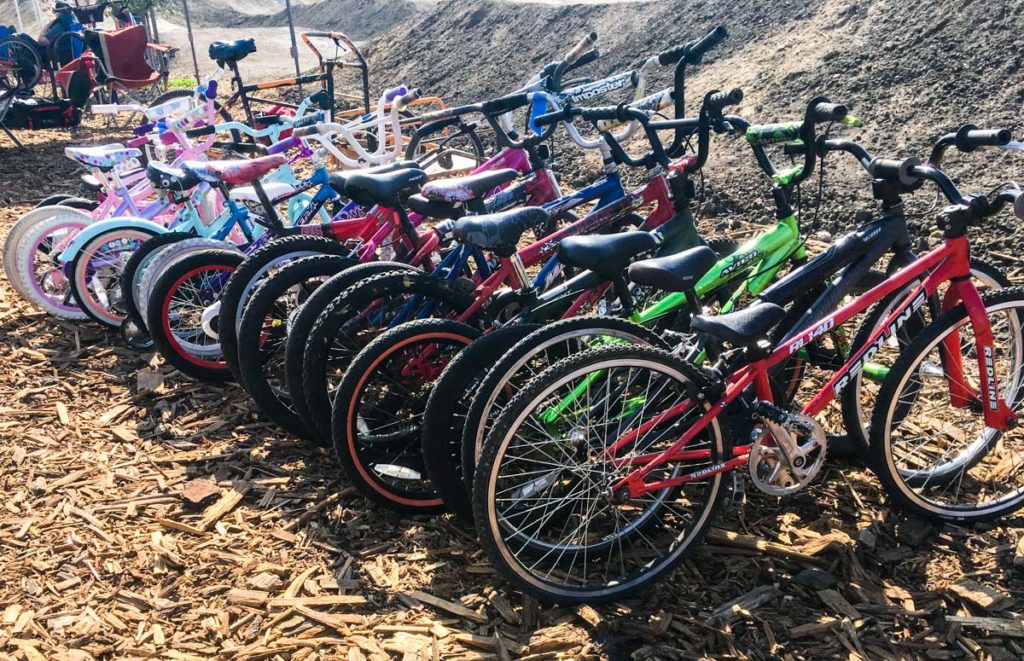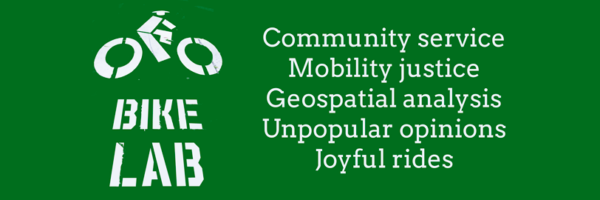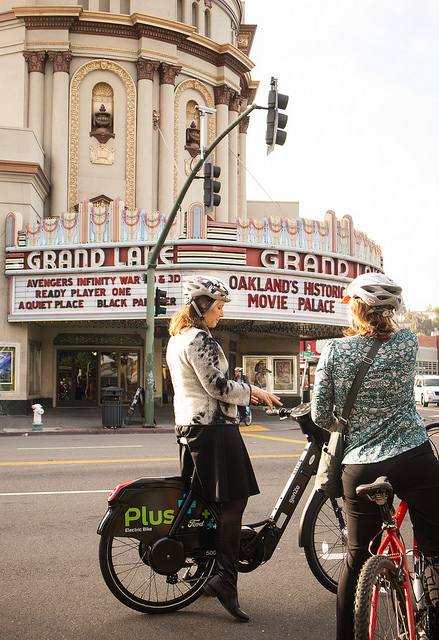As an aspiring Marxist on Labor Day, I was reflecting on the relationship of cycling to worker organizations. One of the findings of my field work is that almost every city has a worker-owned bike collective, whether that’s Austin’s Yellow Bike Project, Charlotte’s ReCycleRy, Columbus’ Third Hand Bicycle Co-op, or the Hub in Minneapolis. There are a ton of them here in the East Bay, including Rich City Rides, Missing Link, Cycles of Change, and SPOKES Family Bike Collective.
The programs offered by these co-ops tend to be community-oriented: social rides, earn-a-bike programs, bike education, and cheap or free repairs and used bikes. When I visited the grand opening of the Dirt World BMX park in Richmond this weekend, where they were giving out a whole array of free kid’s BMX bikes. I saw a boy who’d just gotten one getting air on the kickers in the park.
There’s a lot of great work being done, but on Labor Day I’m here wondering, what is it about the bicycle that activates people’s interest in collectivism? You don’t see co-ops supporting skateboarding, scooters, or driving for that matter. In America, co-op businesses are unusual outside of hippie enclaves, except for bike co-ops. which you see everywhere.
I have two theories. One is that the bicycle is a very accessible machine. All of the engineering is graspable by anyone who is willing to spend some time working with brakes and drivetrains. And once the object is demystified, there’s a power to being able to build and modify it. One of the Scraper Bike Team’s mottoes is, “If you can’t build it, you can’t ride it.” The accessibility of it encourages people to learn new skills and to interact with the bike in a different way.
The other is that for many, the bicycle represents freedom. Certainly for me it does. Riding my bike was my first experience of being able to get to the community pool, to the ice cream shop, to the train station, or to my school 5 miles away, at my own pace and on my own terms. It opened up the world for me, and I think a lot of people had that experience of it. I think that leads to wanting to share that experience with others. And, it leads to a rejection of hierarchy; you can do it yourself, you don’t need a parent, or a boss.
Anyway, some of the same stuff that draws me to cycling seems to draw others to organize collectively to do great work together in cycling co-ops, and I think that’s cool.
I also think that bike advocates and cities don’t do a good job of supporting these collectives. The amount of money going towards design and infrastructure could make a huge difference to these groups which focus on community and education. It’s not simple to move money from infrastructure to community-building, because of the way the grant process works, but we probably should spend more time thinking about how to support these kinds of programs.


